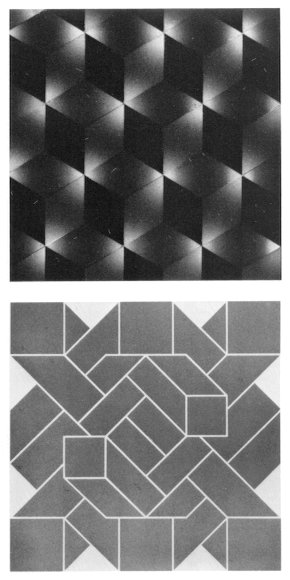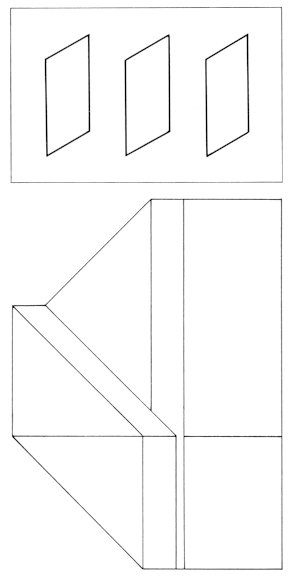|
Illusion of three dimensions (A) 3 Expression with three-dimensional effect
1 -- Ideas to express a
shape and its arrangement
(1) Use of oblique lines and oblique projections The cubic effect can be expressed using oblique lines. The cubic effect is expressed using oblique lines in addition to the shadowing effect in Figure 381. We feel the object as an equi-height diagram. In addition, the effect of oblique lines was used for picture scrolls in the Heian Period and prints in the Edo Period. In those arts, spatially square shapes such as architectures and inside structures of rooms are described by drawing a surface in parallel to the screen and drawing another surface perpendicular to it using oblique parallel lines. These are regarded as paintings expressing the depth similarly to the oblique projection method. This pattern which gives you a strong feeling of
the three-dimensional illusion if this structure is used to compose things
including a house and indoor scenery (Fig. 382-384).
|

